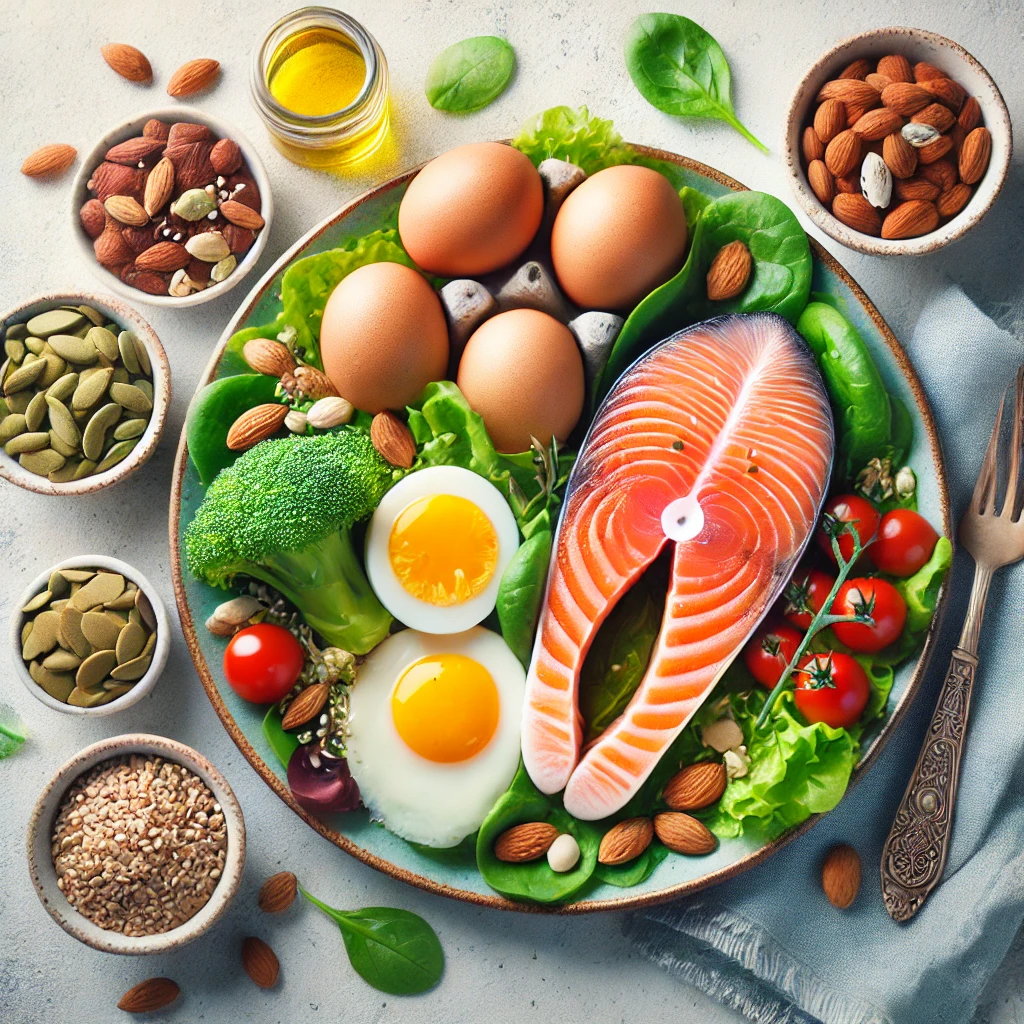When it comes to maintaining healthy hair, there is one nutrient that stands out as essential: protein. Protein plays a crucial role in various aspects of hair health, from stimulating growth to ensuring that each strand remains strong and vibrant. Hair is primarily made up of a protein called keratin, and without adequate protein in your diet, the growth cycle of your hair could be compromised, leading to weaker, thinning, or even shedding hair.
Understanding the relationship between protein and hair growth is not just about focusing on the hair itself but also on the broader aspects of nutrition and health. In this article, we will explore the scientific facts behind how protein influences hair growth, why it’s so important, and how you can ensure you are getting enough of this vital nutrient in your daily diet.
What Protein Does for Your Hair
Hair growth is a complex process that is influenced by various factors, including genetics, hormones, and nutrition. Among these, protein plays a foundational role in the structure and growth of hair. The majority of your hair is composed of keratin, a fibrous protein that gives the hair its strength, structure, and elasticity. When you consume protein, your body breaks it down into amino acids, which are the building blocks of protein. These amino acids are then used to produce keratin, which forms the structure of your hair.
Keratin is a type of protein that provides strength to the hair strands, ensuring they can withstand daily wear and tear. It is also responsible for maintaining the elasticity of the hair, allowing it to stretch without breaking. Without enough protein, your hair may become weak, brittle, and more prone to breakage. Over time, this can lead to thinning hair or even hair loss.
How Protein Deficiency Affects Hair Growth
A deficiency in protein can have a significant impact on the health and growth of your hair. When your body lacks enough protein, it prioritizes essential functions and may reduce its focus on hair growth, which is not considered a vital process for survival. As a result, the growth phase of the hair cycle may be shortened, while the shedding phase may be prolonged, leading to increased hair fall.
Additionally, a lack of protein can disrupt the hair’s natural cycle, causing hair follicles to enter a dormant phase, resulting in stunted hair growth or hair loss. This is often observed in individuals who are severely deficient in protein, either due to poor dietary habits or specific health conditions. It’s important to note that protein deficiency may not immediately result in noticeable hair loss, as hair typically grows in cycles. However, over time, the effects of inadequate protein intake can become more evident.
The Science Behind Protein and Hair Growth
Hair grows in cycles that consist of three main phases: the anagen phase (growth), the catagen phase (transitional), and the telogen phase (resting). During the anagen phase, which can last for several years, hair cells divide rapidly and produce new hair. This phase requires an adequate supply of nutrients, including protein, to ensure the cells are healthy and capable of dividing efficiently. Without sufficient protein, hair growth may be stunted, or the anagen phase may shorten, leading to slower hair growth.
Scientific studies have shown that certain amino acids, which are derived from protein sources, are particularly beneficial for hair growth. For example, cysteine and methionine are sulfur-containing amino acids that help strengthen the hair’s keratin structure, providing the hair with its rigidity and resistance to damage. These amino acids are also involved in the formation of collagen, which is a key protein that supports the structure of the hair follicles.
Moreover, research has indicated that increasing protein intake can positively affect hair health. A study conducted on individuals with protein deficiencies found that a high-protein diet significantly improved hair density and thickness over time. Another study published in the Journal of Clinical and Aesthetic Dermatology demonstrated that hair loss in individuals with insufficient protein intake could be reversed by supplementing with the right amino acids.
How Much Protein Do You Need for Healthy Hair?
The amount of protein needed for optimal hair growth varies from person to person, depending on factors such as age, gender, physical activity levels, and overall health. However, on average, adults should aim to consume about 0.8 grams of protein per kilogram of body weight. For individuals with higher activity levels, such as athletes or those involved in intense physical labor, this requirement may be higher.
In terms of hair health, it’s not just about the quantity of protein, but also the quality of the protein you are consuming. High-quality, complete proteins contain all nine essential amino acids that the body cannot produce on its own. These proteins are typically found in animal-based sources such as meat, poultry, fish, eggs, and dairy products. Plant-based sources of protein, such as legumes, nuts, seeds, and soy, can also be excellent options, although they may require careful planning to ensure they provide all the essential amino acids.
Protein-Rich Foods for Hair Growth
To promote healthy hair growth, it’s essential to incorporate protein-rich foods into your daily diet. Some of the best sources of protein for hair health include:
- Eggs: Rich in high-quality protein and essential amino acids, eggs are a powerhouse for hair growth. They also contain biotin, a B vitamin that supports the production of keratin.
- Fish: Fatty fish, such as salmon and mackerel, are packed with protein and omega-3 fatty acids, which are essential for scalp health and hair growth.
- Nuts and Seeds: These plant-based protein sources are also rich in healthy fats, vitamins, and minerals that nourish the hair and scalp.
- Lean Meat and Poultry: Chicken, turkey, and lean beef provide high-quality protein and iron, which are vital for strong, healthy hair.
- Legumes: Lentils, beans, and chickpeas are excellent plant-based protein options that also provide a good amount of iron and zinc.
Additional Tips for Promoting Hair Growth
While protein is an essential component for hair growth, it’s important to remember that overall health is also critical. Maintaining a balanced diet, staying hydrated, and ensuring that you are getting a variety of vitamins and minerals will help support your hair’s health and growth.
Iron, zinc, vitamin D, and biotin are also important nutrients that contribute to healthy hair. Ensuring you get enough of these vitamins and minerals, along with a protein-rich diet, will provide the foundation your hair needs to grow strong and thick. Additionally, reducing stress, avoiding excessive heat styling, and protecting your hair from environmental damage will further support healthy hair growth.
Protein is not just a crucial macronutrient for overall health but also for the vitality and growth of your hair. As hair is primarily composed of keratin, which is made from amino acids derived from protein, it’s clear that adequate protein intake is essential for maintaining strong, healthy, and growing hair. By ensuring that you are consuming a variety of protein-rich foods, along with other essential nutrients, you can support your hair’s natural growth cycle and achieve the thick, vibrant hair you desire. If you’re experiencing hair thinning or shedding, consider assessing your protein intake and dietary habits to ensure you’re giving your hair the nutrients it needs to thrive.





